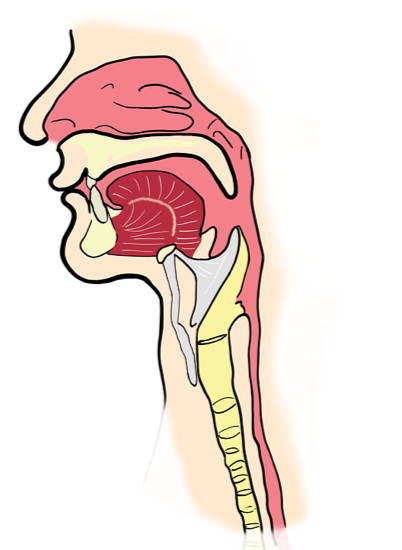A sore throat is one of the most common symptoms that many of us go through due to a few reasons. A sore throat usually gets better after a few days, but in some cases, it keeps progressing, leading to a bigger health risk. Sore throat is the feeling of a dry and itchy throat that is sometimes quite painful. For some, sore throats are highly unbearable, and there are a few things you can do to cure the pain you experience due to a sore throat. To learn more about a sore throat and deal with it, you must read this article further below.

(Source)
What Causes a Sore Throat?
1. Bacterial Infection
If you’re suffering from a bacterial infection such as strep throat, then you’re most likely to experience throat ache. Strep throat is an infection that directly affects the tonsils and throat.
2. Viral Infections
One of the most common viral infections that we experience is a cold and flu. You will sometimes notice that it’s also your throat that starts hurting whenever you’re suffering from the flu. According to research, about 90% of sore throats derive from viruses. Other than a common cold and flu, viruses like measles, mumps, chickenpox, COVID19, and mononucleosis may cause a sore throat.
3. Chemicals
Unfortunately, the air we breathe has many chemicals due to poor care cleaning practices and industrial wastes, smoke, etc. Different chemicals and substances from air pollution, cleaning products, and smoking ignite throat infections such as a sore throat.
4. Allergies
If you’re allergic to pollen, pet’s fur, and grass, you’re most likely to develop a sore throat. When these allergies get triggered, you experience many symptoms such as congestion, sneezing, watery eyes, and sore throat.
5. Gastroesophageal Reflux
Gastroesophageal reflux is a stomach infection in which all the gases start to gather in your stomach, causing slight inflammation. The acid reflux and goes up to your esophagus tube, which causes sore throat.
6. Injury
You could also suffer from a sore throat if in case you get an injury on your throat. This injury could include a cut on your neck or getting something stuck in your throat. Sometimes injuries in the throat take place by talking too much or screaming too loud for long hours.
Common Symptoms of Sore Throat
Mentioned below are some of the common symptoms you may experience during a sore throat. The symptoms vary depending on the cause of throat soreness.
- Difficulty in swallowing food
- Unable to talk properly in your normal voice
- Itchy throat
- Slight burning and pain in the throat
- Swollen neck glands
- White patches on tonsils
- Swelling on tonsils
Treatment for Sore Throat
There are many treatment options available for a sore throat, and you can carry all of these treatments at home. You will need to grab a few ingredients from your kitchen and use them till you feel better and achieve instant relief.
The best home remedy for sore throat is by gargling your throat with saltwater. All you have to do is get a glass of water and mix one teaspoon of salt. Repeat this twice a day to achieve quicker healing. You should also stick to a warm diet that involves drinking fluids such as warm soup, tea with honey, and different herbal teas. Keep chewing in lozenges or a hard piece of minty candy as this provides instant relief from the itchiness and burning caused by a sore throat.

(Source)
The easiest way to achieve quick healing is by resting your vocal cords. Avoid screaming or talking unnecessarily as this is when your voice box needs the most rest. You can also keep a cool humidifier in your room as this helps add moisture to the air, making it good for breathing.
How to Prevent Sore Throat
You can do a few things to avoid a sore throat, and the best way to do that is by keeping yourself clean and avoiding germs. The spread of germs is one of the few reasons that make you prone to a sore throat, especially in children.
There are a few basic hygiene practices that you must regularly maintain to avoid this painful condition. These include regularly washing your hands, using hand sanitizers, and avoid touching objects in public places. You should also not share food or utensils, especially with someone who is sick. Besides, regularly disinfect things around your house that you make the most contact with.
Bottom-Line
Now that you’re aware of what a sore throat is and how to treat and prevent it, you must educate others around you as well. It is always good to maintain a healthy lifestyle and avoid small health issues like this. If you need to get in touch with a good ENT specialist, consider top NYC ENT Doctor Michael Burnett MD at Ear, Nose & Throat of New York to achieve the best treatment for ENT related problems in NYC.












